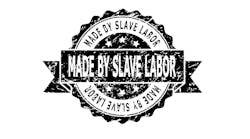Commentary
With strong allies at the White House, the National Labor Relations Board (NLRB) and a slew of other federal agencies, labor unions have launched a tidal wave of organizing election requests across the country.
The NLRB recently heralded the big jump in union election petitions that were filed during the first half of Fiscal Year 2022 (Oct. 1, 2021–March 31), a total of 1,174, up 57% from the 748 in the second half of FY 2021. At the same time, the board reported that unfair labor practice charges have increased 14%, from 7,255 to 8,254.
The board’s General Counsel Jennifer Abruzzo is doing everything she can to make sure those petitions become representation victories for the unions by issuing sympathetic interpretative memos and policy pronouncements. In doing so, she has made it clear that the board views its role as a primary engine of unionization instead of serving as a neutral referee between management and labor.
However, this wave of vote requests also presents a challenge to the board because her agency is short-staffed. “Right now, there is a surge in labor activity nationwide, with workers organizing and filing petitions for more union elections than they have in the last 10 years,” she said. “This has caused a significant increase in the NLRB’s caseload, and the agency urgently needs more staff and resources to effectively comply with our congressional mandate.”
President Biden’s federal budget proposal includes an increase for the board, but it remains to be seen whether Congress will approve it. Either way, don’t expect Abruzzo to slacken her pro-union campaign.
Biden campaigned as the unions’ friend and has worked hard to live up to that title. Earlier this year, he mobilized all federal agencies to take part in a government-wide initiative explicitly designed to help smooth the way for union organizing, ranging from individual agency efforts to the mounting of interagency cooperative enforcement actions leveled against non-union employers.
For her part, Abruzzo began taking point in pushing pro-union policies since assuming her current post in July 2021. She already knew her way around the halls of the NLRB because she had worked there for 20 years before becoming a union official and later working on the Biden transition team.
Although she has not been shy in consistently striking a pro-union stance, Abruzzo’s declaration that unions will now be allowed to use a recruiting procedure called Card Check in the absence a congressional change to labor law was jarring.
Card Check would force employers to recognize a union’s representation of its workers based on signed employee authorization cards instead of an NLRB-supervised secret ballot vote. For many years a top priority on labor’s policy wish list, even Democrats in Congress have shrunk from abandonment of the secret ballot, believing that Card Check can lead to intimidation and bullying because it forces employees to choose whether to sign union cards in the presence of union officials and their fellow workers.
In fact, the idea was so controversial that Card Check failed to pass Congress in 2009, the first year of Barack Obama’s presidency, when the Democrats held such an overwhelming majority in both houses of Congress that they could pass Obamacare without a single Republican vote.
A variation of the Card Check concept was written into the Protecting the Right to Organize Act, also called the PRO Act. Democrats introduced that legislation in Congress early last year with great fanfare, only to see it sputter and stall out.
In fact, this failure of a Democrat-controlled Congress to enact the PRO Act—one of the signature pieces of the Democrat legislative agenda—may be a primary motivating factor for the administration and Abruzzo to come up with a way to make unions happy. That could be why Abruzzo is preparing to impose Card Check administratively through the offices of the NLRB.
Silencing the Employer
In a recent memo to board staff, Abruzzo contends that when an employer refuses to recognize and bargain with a union after it has presented evidence that a majority of the workers have signed union representation cards—and the employer can’t establish a good faith doubt about that majority status—the employer has violated federal labor law and the NLRB can simply order the employer to recognize the union at that point.
In addition, any employer who seeks to uncover evidence to support its doubt regarding the validity of the Card Check majority status must contend with existing prohibitions against “interrogating” employees about their union activities. At the same time, the unions is free to say virtually anything to employees in order to secure their support, explains attorney Andrew M MacDonald of the Fox Rothschild law firm.
“Employees can be subject to pressure from union organizers and fellow employees to sign cards, which raises questions about whether signed cards reflect the uncoerced desire of employees,” he points out.
But that is not the worst prospect for employers who would find themselves caught in the tightening web of an organizing campaign conducted under this new legal doctrine. The union action may be sprung with no notice and there is little or no time allowed for an employer to mount any kind of meaningful campaign to counter the union’s organizing effort, MacDonald notes.
William J. Kishman, an attorney with Squire Patton Boggs, says this is particularly true since Abruzzo, in a separate action, has asked the board members to disallow employers from holding mandatory meetings with workers during the period leading up to a union vote. For decades, courts and the board have allowed employers to require employees to attend meetings where the employer lawfully communicates information about unionization.
“Under the law, a union can spend months or even years attempting to persuade employees before it announces its presence or requests an election, but then potentially obtain an election within four to five weeks of announcing its presence, so these meetings have represented a key avenue for employers who are seeking to ensure employees understand both sides of the issue and the impact of their vote.”
You undoubtedly have heard of the right to free speech. Abruzzo argues that the change is needed to protect a right that she has concocted entirely on her own—“the right to refrain from listening to employer speech” in regard to their labor rights.
Kishman contends that even if it is not eventually adopted by the board, this already dramatically changes the landscape for employers. “As of now, employers who hold such mandatory meetings run the risk that the NLRB will deem them to have violated federal labor law, even if such a decision would be highly vulnerable to challenge.”
MacDonald warns that the prospect of Abruzzo ultimately succeeding in imposing Card Check should send chills down the spines of employers with the knowledge that their employees could unionize without advance notice and not having the opportunity to communicate with them in a non-threatening manner.
He adds that unions already have adequate means for challenging anything they consider to be improper employer conduct by filing Unfair Labor Practice charges during the period leading up to elections, a charge frequently leveled following votes where the workers have rejected the union. Under Abruzzo and the current board, the odds that union complaints will be accepted as bona fide have skyrocketed.




